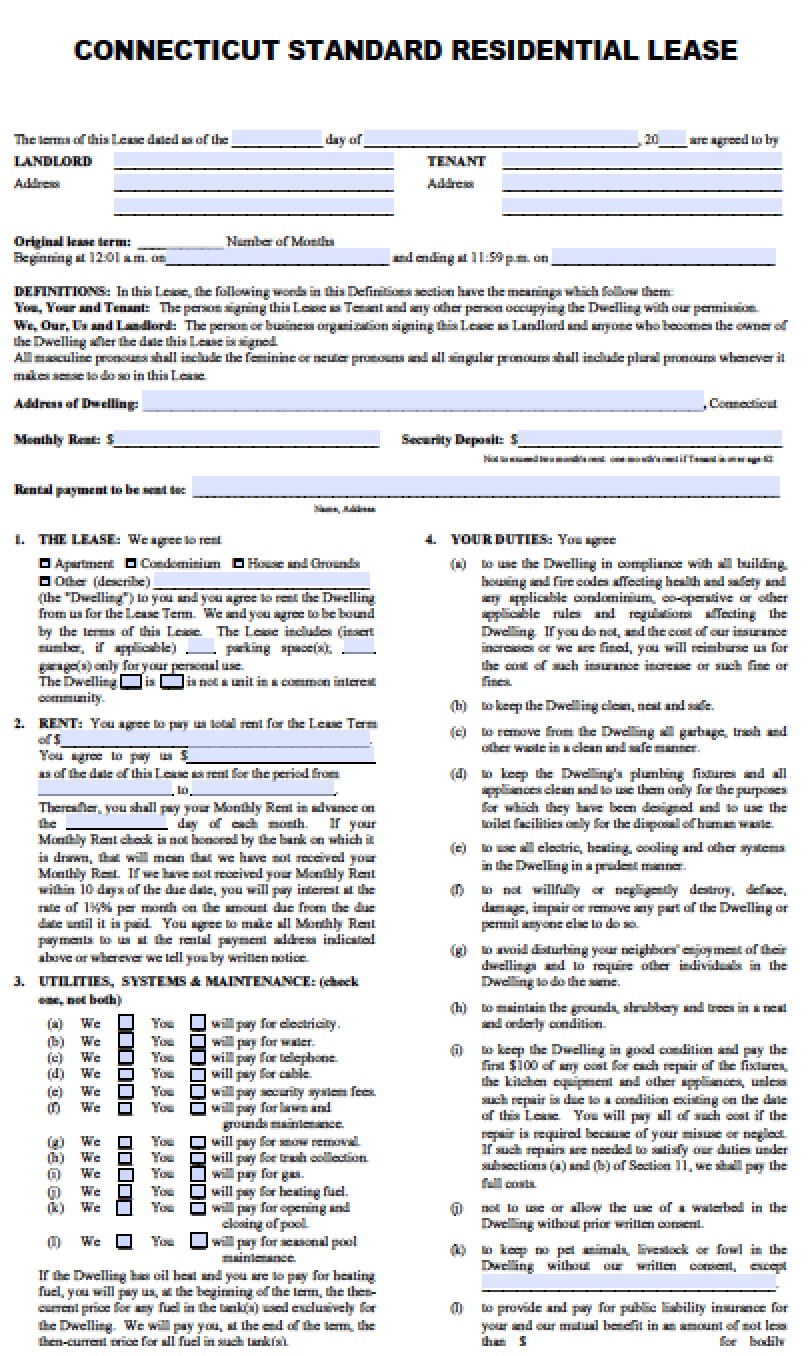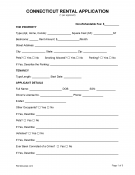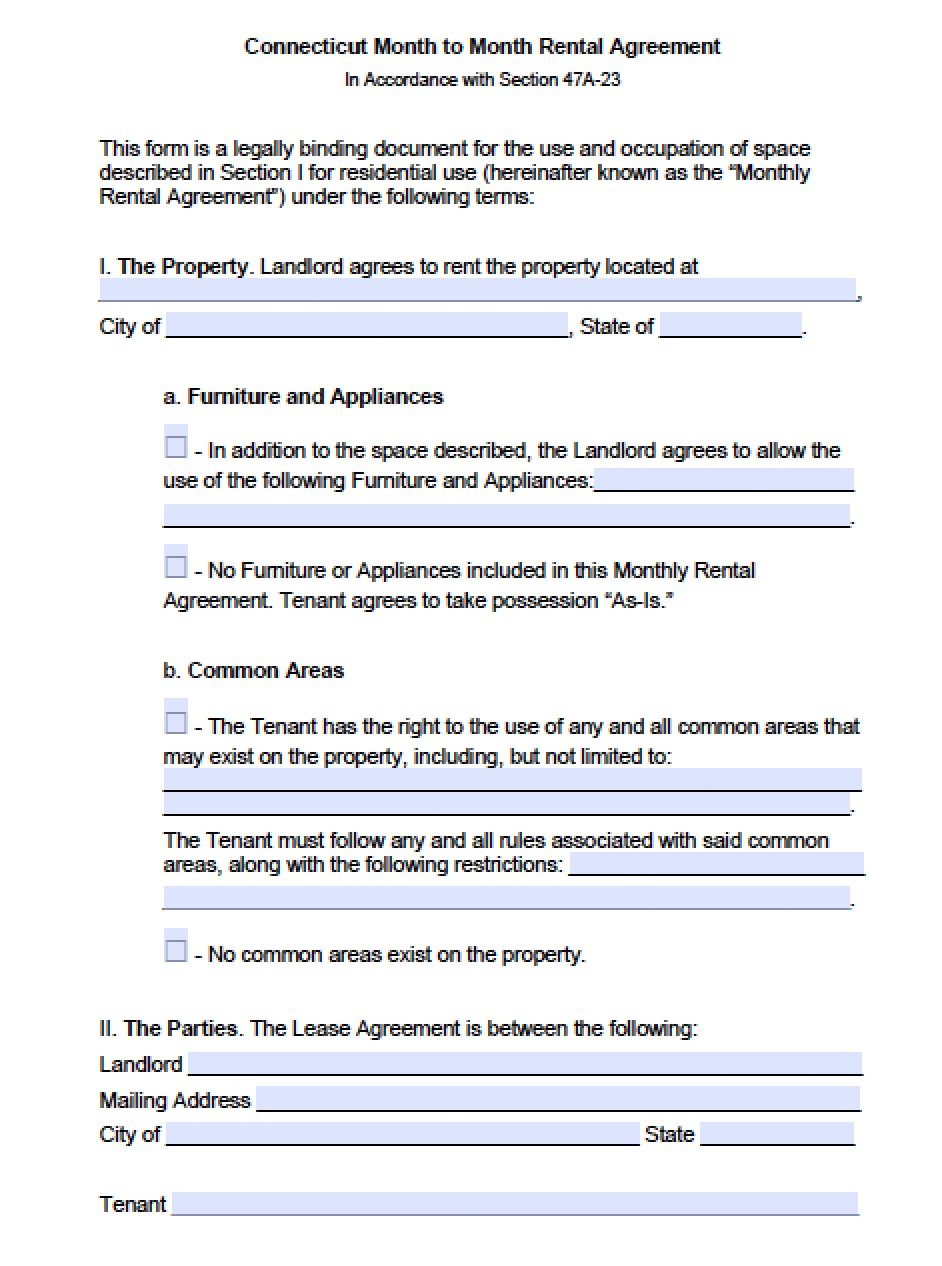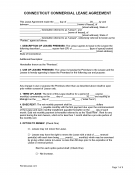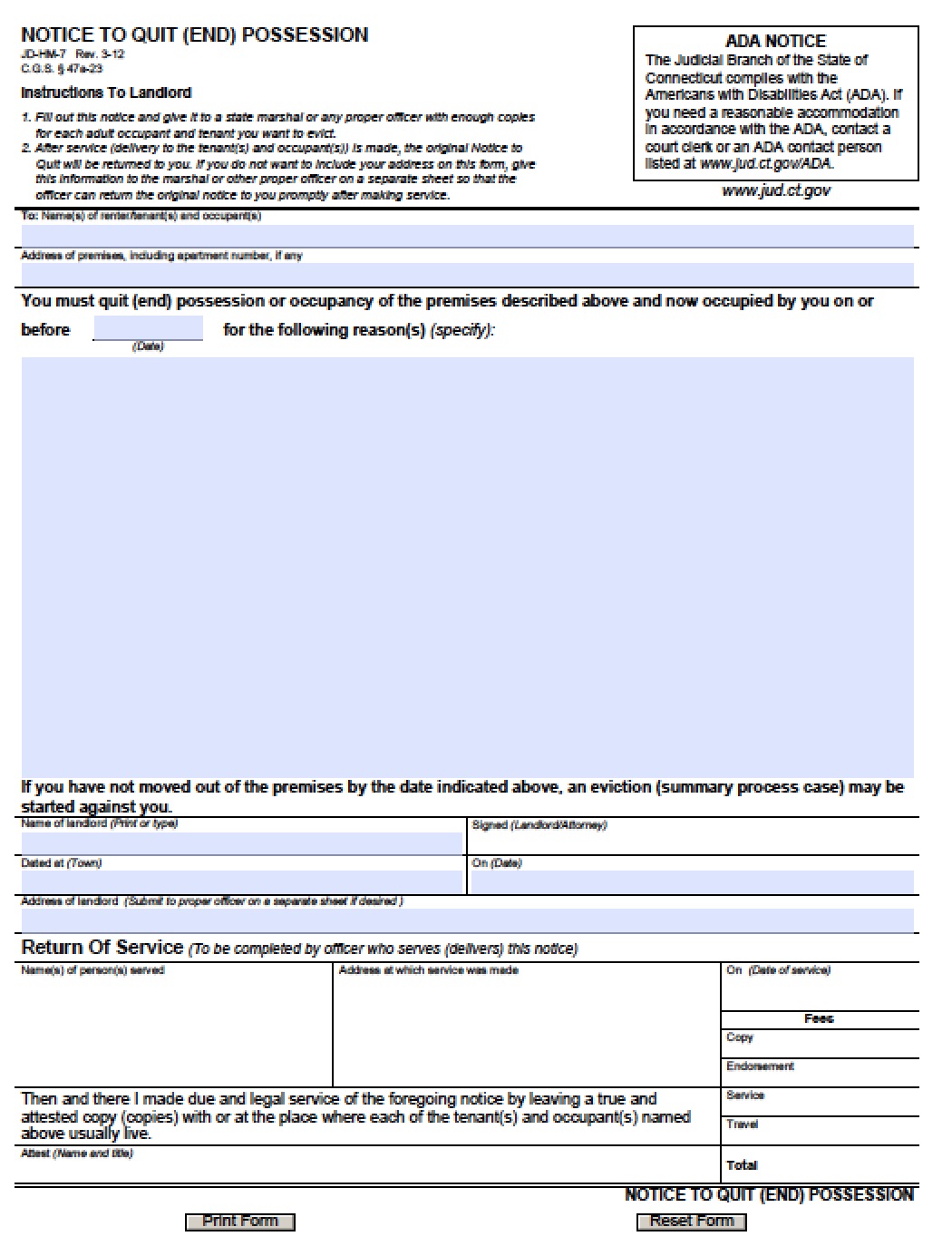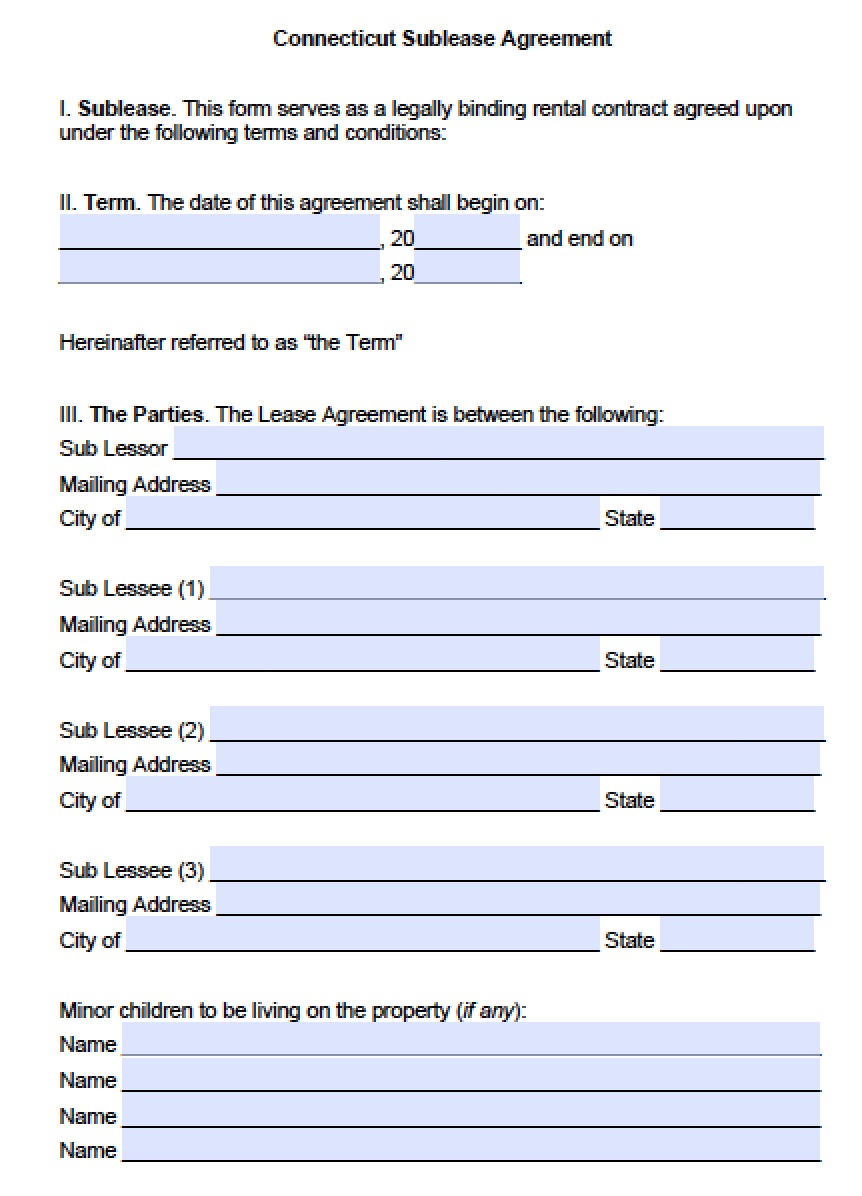Connecticut lease agreements allow a landlord to rent a property to a qualified tenant. The tenant will commonly pay monthly rent on the first (1st) of each month and comply with all other terms and conditions. The tenant has a nine (9) day grace period to pay rent or else a 3-day notice to quit will be served.
It is recommended that landlords screen their tenants through the use of a rental application.

